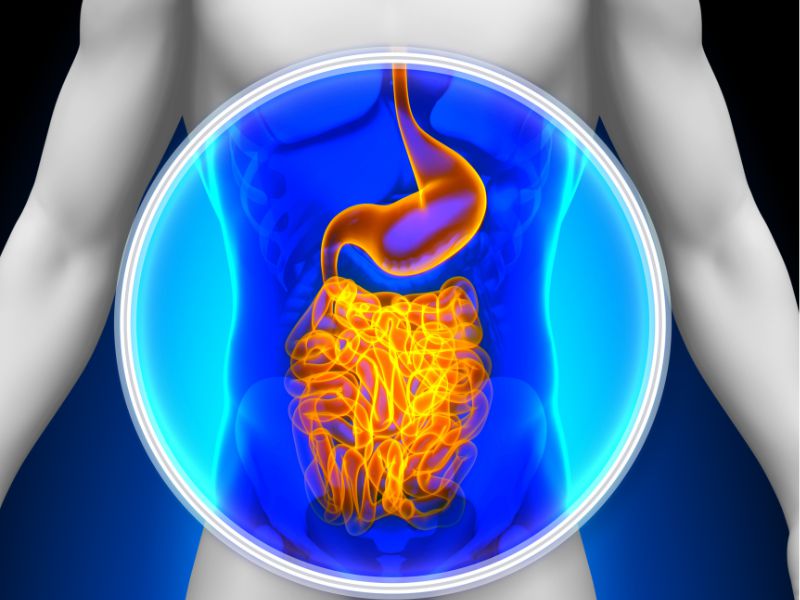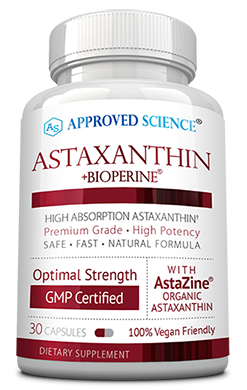Astaxanthin was originally recognized for its role in imparting its vibrant red-pink hue to various organisms. For example, this compound is responsible for giving shrimp and flamingos their pink color. However, its significance goes far beyond its ability to add a dash of color. Discovered nearly a century ago, this carotenoid has evolved from being a mere pigment to a potential solution for various health challenges.
A Powerful Antioxidant
Astaxanthin rose to fame when its potent antioxidant properties were unveiled. In fact, its incredible potential has earned it the title “king of the antioxidants“. This royal antioxidant has demonstrated benefits for eyes, skin, heart health, cognitive health, and even post-workout recovery (1,2,3,4,5). However, the list of astaxanthin benefits doesn’t end there! Astaxanthin may also be beneficial for gut health.
Astaxanthin’s Effects On Gut Bacteria
Astaxanthin has been found to influence the microbiota (bacteria) inside the body. One study found that astaxanthin supplementation in individuals with alcoholic fatty liver disease caused a decrease in 5 types of bacteria (phyla Bacteroidetes, Proteobacteria, Butyricimonas, Bilophila, and Parabacteroides), some of which are associated with inflammation (6). The study also observed an increase in 2 beneficial bacteria species: Verrucomicrobia and Akkermansia.
These findings can have implications for health conditions related to the intestinal barrier. Akkermansia, the beneficial bacteria that increased, is involved in producing nutrients for the cells of the intestines that produce mucus to coat the intestinal lining (7). This can support the health of the mucosal lining which is crucial for healthy barrier function, preventing intestinal gut permeability (leaky gut), and also plays managing inflammation in the gut (7).
Other studies have also observed changes in gut bacteria as a result of astaxanthin. In a 1999 study, researchers gave astaxanthin to mice with H. pylori infections. H. Pylori is a type of bacteria that can cause digestive issues. This study found that astaxanthin decreased the bad bacteria, alleviated digestive issues, and improved immune system function (8). More recent studies have studied the effects of astaxanthin on H. pylori infection and confirm that astaxanthin may be beneficial for H. pylori treatment (9,10,11).
Perhaps as a result of astaxanthin’s involvement in gut bacteria, it may be able to reduce constipation. An interesting study performed on individuals with high oxidative stress levels found that over the course of 8 weeks of astaxanthin supplementation, their symptoms of constipation improved (12).
>>>Discover Astaxanthin’s Other Benefits<<<
Conclusion
More and more research indicates that astaxanthin may be beneficial for gut health. It has demonstrated positive effects on gut bacteria and the symptoms associated with bad bacteria. Based on the current research, it appears that astaxanthin could have potential as a complimentary supplement for various gut-related health conditions, though further research is still required. Astaxanthin is generally well tolerated, however, as with any supplement, it is imperative that you consult with a qualified health professional before you start taking astaxanthin.


